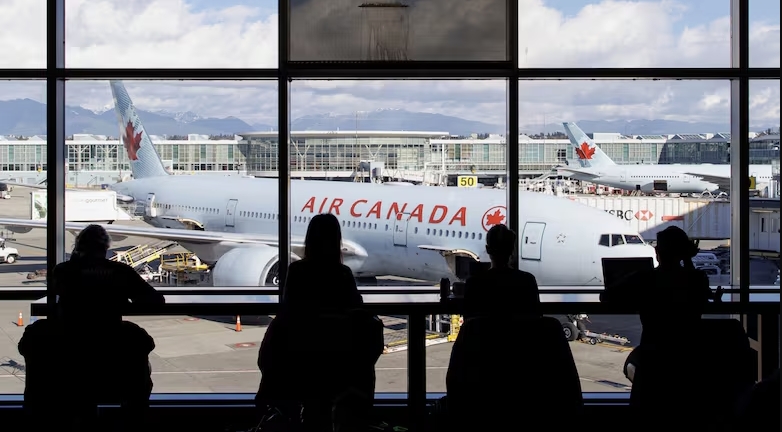Air Canada Pilot Urges Passengers to Contact MPs Over Air Traffic Controller Shortage
Lucas Tremblay
5/27/20252 min read


Passengers on a recent Air Canada flight from Vancouver to Montreal got an unexpected message from their pilot — a plea to contact their MPs about the growing shortage of air traffic controllers in Canada.
The pilot, announcing a 50-minute delay over the intercom, said staffing issues at Nav Canada, the private agency responsible for air traffic control, were causing costly delays for both the airline and travelers. “It’s very annoying,” he told passengers, adding that the situation was hurting business and leisure travel alike. A portion of the message was recorded by a CBC reporter on board.
The pilot suggested that Nav Canada was limiting the number of new hires to maintain high overtime pay, and encouraged passengers to advocate for change. “Please write your MP and let them know what’s going on,” he said.
Nav Canada has denied the claim, stating that no trainees are deliberately rejected to boost overtime. The agency says it is aggressively expanding its training pipeline, with nearly 500 students currently enrolled and plans to train up to 1,500 by 2028.
The pilot’s frustration echoes concerns across the aviation industry. Tim Perry, president of the Air Line Pilots Association, said systemic staffing shortages are affecting both major carriers and small operators. “If passengers are frustrated, pilots certainly are too,” he said, emphasizing that the issue isn’t with individual controllers but with broader under-resourcing.
Small airlines are feeling the impact as well. Teara Fraser, CEO of Indigenous-owned Iskwew Air, said her short regional flights are frequently delayed — often by longer than the flight itself. “Delays of 20 minutes to two hours are now routine,” she said. “It’s not a new problem, but it’s getting worse.”
An Air Canada spokesperson confirmed ongoing delays at Vancouver International Airport due to Nav Canada’s staffing challenges, which have disrupted flight schedules for several weeks.
Nav Canada acknowledged the issue and said a temporary traffic management plan was put in place over the weekend to help ease pressure at Vancouver’s busy terminal. The company said it has issued nearly 40 new licences for Vancouver-based controllers in the last year and emphasized that the region presents one of the most complex airspaces in the country.
While efforts are underway to increase training capacity, industry leaders say a long-term, collaborative approach is needed — with support from government, airlines, and labour groups — to ensure Canada’s air traffic system can keep up with growing demand.
News
Stay updated with the latest BC news stories, subscribe to our newsletter today.
SUBSCRIBE
© 2025 Innovatory Labs Inc.. All rights reserved.
LINKS
